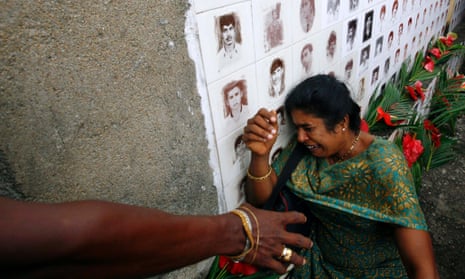Torture is amongst the most heinous act states commit against individuals. It also persists and even flourishes, despite the condemnation of millions and tireless efforts of human rights organisations over the last 40 years. Facing these facts, some of us have to get down from the stands of naming and shaming and onto the field of engagement with those who perpetrate it – a strategy that some confuse with complicity.
Over the last three years, an international team of researchers have worked to identify, pilot and evaluate more effective ways to prevent torture. Our findings include troubling conclusions about the main approaches to prevention today, including “naming and shaming” and seeking to hold states responsible through international obligations. These approaches are effective only under certain conditions. Where states routinely act unlawfully their purchase is particularly limited.
Meanwhile, some of the most trenchant causes of torture are found in the cultures and routine practices of security forces. Local reward and punishment systems may encourage torture as a means of obtaining quick confessions. Security personnel may believe that they are doing the right thing or that a good beating is what is needed to set certain types of people right. Certainly some torture occurs because there are political orders from above, but a great deal of violence is not the result of the absence of good laws or the presence of bad orders, but of the everyday cultures that regulate what happens within security forces. And it is these that are most resistant to change by formal legal rules or naming and shaming.
Drawing on this research, the Enhancing Human Rights Project has developed an approach that seeks to prevent torture by transforming the cultures and practices of the security organisations. But cultural organisational change is not something that can be done to organisations – it needs to happen from within and through sustained engagement with the personnel involved. In adopting this strategic approach, we have made the choice – a difficult and ethically complex choice - to engage with organisations that we know have committed and continue to commit abuses that we condemn.
This week, our team, together with the personnel from the Armed Forces and Police in Sri Lanka and the Police in Nepal with whom we have been working, and representatives from the police and military from 13 other countries in the region, meet to discuss this approach and how it could be used elsewhere in the region to prevent torture. Joined by a number of the civil society organisations that have been working in the region towards the same goal, the conference represents a unique opportunity to bring this range of often polarised groups in the same room and to explore possibilities for engagement towards more effective prevention strategies.
Last week, the Sri Lankan authorities announced that security personnel who had been part of our project would not be permitted to attend if certain Sri Lankan NGOs were present at the conference. Our local partner leading the project in Sri Lanka advised that it was crucial for them to sustain a relationship of engagement with the security forces. To refuse to accede to this admittedly strong armed and unreasonable request would be the end of any ability on their part to critically engage the forces and would likely result in serious repercussions for them personally and organisationally. It also risked having the other security organisations that had committed to attend pull out.
The alternative – asking two of the Sri Lankan NGOs which operate under continued constraint and suppression – was one that we found repellent and that we were well aware contravened principles that we and others in the human rights world hold dear.
We had a choice between two alternatives: having no Sri Lankan security sector representation and thus sacrificing our local partner’s ongoing work and placing them at risk, or asking two NGOs not to attend this conference while retaining both broad civil society and security sector presence. On either side lay principles that are – in the abstract – absolute and must not be contravened. But when you actually move from the stands of accusation and criticism onto the field of engagement you are likely to find yourself facing tragic choices. But the tragedy of the choice hardly compares with the tragedy of failing to prevent torture.
There are certain principles that must be adopted, one of which has to be that when we are engaging, we agree to withhold using the strategies of exposing and accusing. These remain an important part of the human rights toolkit for preventing torture, but these different strategies cannot operate in the same room. It is a prosaic interpretation of the right to free speech to say that it means that one can say what one wants in all situations and at all times. Peace negotiations between entrenched enemies would never get off the ground were negotiators not to establish mutually agreed parameters for the engagement. There is a difference between suppressing free speech and asking participants be mindful of the consequences of the words they choose and to stay committed to keeping all parties in the room for the purposes of advancing our shared aim of ending torture.
The evidence tells us that doing nothing except condemning will not be sufficient to end torture. It also tells us that we must include critical engagement with security forces in order to get in to transform their cultures and everyday understandings and practices. This is complex and deeply uncomfortable, but we choose to do it because preventing torture demands it.




